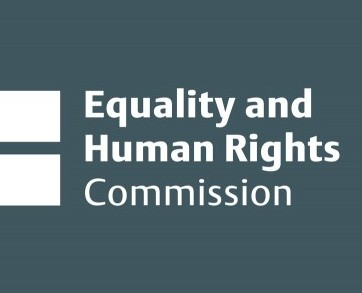 The Equality and Human Rights Commission (EHRC) has urged the Scottish, Welsh and UK Governments to amend legalisation to curtail the ability of state funded faith schools in Britain to religiously discriminate in the recruitment and employment of teachers. It has also stated that it believes the current teacher discrimination laws are incompatible with European Union (EU) law.
The Equality and Human Rights Commission (EHRC) has urged the Scottish, Welsh and UK Governments to amend legalisation to curtail the ability of state funded faith schools in Britain to religiously discriminate in the recruitment and employment of teachers. It has also stated that it believes the current teacher discrimination laws are incompatible with European Union (EU) law.
The EHRC has set out its conclusions in a new study published this month entitled ‘Religion or belief – is the law working?’ which investigates the efficacy of the legal frameworks in Britain at protecting and upholding the rights of individuals with a religion or belief and the distinctiveness of religion or belief organisations. It criticises the teacher discrimination laws for giving faith schools a broad ability to religiously discriminate that lacks any requirement to show such discrimination is proportionate. It urges the relevant Governments to amend the teacher discrimination laws in the interests of ‘clarity and consistency of equality law, and given the … large proportion of schools involved’ (p27).
Over a third of state funded schools in Britain are faith schools. The report credits the dossier that Accord maintains on narrow and exclusive practices by faith schools as providing examples of how teachers are adversely affected by the current legal arrangements.
Chair of the Accord Coalition, Rabbi Dr Jonathan Romain, said ‘The EHRC’s conclusions are a victory for common sense. There is no reason why faith schools should enjoy wide ranging exemptions from normal employment protections to require teachers to respect and uphold the school’s religious ethos. School’s focus should be on providing children and young people with a high quality and rich education, not discrimination.’
The EHRC suggests that if wishing to employ a teacher on faith grounds state funded faith schools instead be treated like a normal employer and be required to apply a genuine occupational requirement (GOR). GORs can usually only be applied to a small number of posts and allow employers to discriminate if they can show that the discrimination is required, legitimate and proportionate. In contrast, most state funded faith schools in Britain can currently apply religious restrictions and requirements in the recruitment and employment of all their teachers, including those who may not have a pastoral role, teach instructional RE or lead worship, and even if no regard was given to the teacher’s religion or beliefs when they were appointed.
EU law currently enjoys primacy over UK law. The Government has announced that as part of its plan for the UK to leave the EU it will table a Great Repeal Bill which will enact all existing EU law into UK law. The EHRC is the publicly funded agency tasked with promoting and enforcing the equality and non-discrimination laws in Britain.
Notes
Faith discrimination in teacher employment is out of step with mainstream values
A 2009 YouGov poll commissioned by Accord found 72% of British adults ‘agreed or strongly agreed’ that ‘all state funded schools should operate recruitment and employment policies that do not discriminate on grounds of religion or belief’, with only 9 % disagreeing or strongly disagreeing. YovGov polled a balanced sample of 2083 adults in Great Britain.
Faith schools are suffering from teacher shortages due to unnecessary religious restrictions
The National Association of Head Teachers’ 17th Annual Report (2011) on the state of the senior school staff labour market found that the national the shortage of head and deputy head teachers was disproportionately severe in the faith school sector, noting ‘Once again this year, faith schools experienced particular difficulty at all stages of the recruitment process; this is especially true for many Roman Catholic schools, where the appointment rates were lower than any other school type’ (p6)
A September 2015 Church of England report into the training needs of it schools noted how the national shortage of school leaders was ‘… felt even more acutely by the Church of England’s network in education’, but that ‘many dioceses have become more flexible around the requirement that head teachers need to be practising Christians and can reference successful church school heads who are from other faiths or none at all but are able to maintain a clear vision for education in line with the overall vision outlined above’ (p36). These schools affirm how faith schools do not need to erect further barriers in finding the best teachers.


